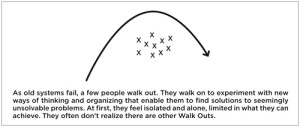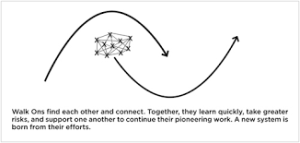Over the last few weeks we have seen the unfolding story of a health secretary in a battle with Junior Doctors (of which there are 53,000). Under-girding the entire debate is a manifesto promise made by the Conservative government that they will deliver a 7/7 NHS. There has been a misuse of statistical evidence by the government to inform this position and indeed we do already have a 7/7 NHS.
In order for this promise to become a reality, the government must face up to certain facts, which are obvious for all to see. Firstly, the NHS is underfunded and rearranging pay agreements with junior doctors who are already underpaid is grossly unfair and will not achieve the desired affordability. Secondly, the NHS is understaffed (we already have one of the lowest doctor to patient ratios in the EU). Thirdly, morale among NHS staff is low, and much of this is due to staff being used as fodder to drive the system, rather than cultivating a system in which they are cared for, can flourish and can influence change in the system where it doesn’t work. Pushing more work for less pay will not drive up morale! Fourthly, the slashing of local government budgets is causing a social care crisis that has huge implications on the ability of the NHS to function. Fifthly, public health budgets have been reduced to a bear minimum at a time when we know we need to have wider conversations with the citizens of the UK about how to take greater care of their own health and the health of their communities in order to make the NHS sustainable. Sixthly, the problems with weekend care in our hospital systems are a result of a lack of support staff and services available over weekends and a crumbling social sector which blocks up hospital beds. Needless to say, the situation is complex.
 And so, given such a complex problem, how should the system be lead and managed? With an iron rod? With bullying, top down hierarchy? With “visionary” leadership that knows how to do the “right thing”? With the defeat o
And so, given such a complex problem, how should the system be lead and managed? With an iron rod? With bullying, top down hierarchy? With “visionary” leadership that knows how to do the “right thing”? With the defeat o f the ‘militant’ junior doctors? What kind of system is the NHS? It is not a linear, predictable system, but rather something far more akin to a human body, a living, organic system. Meg Wheatley in her book, “Leadership and the New Science” writes powerfully about the folly of trying to manage complex systems as though they respond to the theories of Descartes and Newton – they simply don’t behave that way. And so, this kind of system cannot and will not respond best to competition, targets, inspections and beating its members into submission. No, it will respond best to collaboration, to the right environment in which people can thrive. It requires the kind of leadership that will listen, that will work in partnership, that will host good conversations and find a way through together. I do not see that kind of leadership from the department of health.
f the ‘militant’ junior doctors? What kind of system is the NHS? It is not a linear, predictable system, but rather something far more akin to a human body, a living, organic system. Meg Wheatley in her book, “Leadership and the New Science” writes powerfully about the folly of trying to manage complex systems as though they respond to the theories of Descartes and Newton – they simply don’t behave that way. And so, this kind of system cannot and will not respond best to competition, targets, inspections and beating its members into submission. No, it will respond best to collaboration, to the right environment in which people can thrive. It requires the kind of leadership that will listen, that will work in partnership, that will host good conversations and find a way through together. I do not see that kind of leadership from the department of health.
 The NHS is a national treasure. Yet, this government, with only 36% of the national vote, from an antiquated and unjust ‘first-past-the-post’ voting system, is driving through ideological changes that it has no true mandate from the people to execute. This kind of political behaviour exposes more than ever the abuse of sovereign power and the need for something totally different. We need leadership, but we need a new kind of leadership, a leadership that is loving, compassionate and kind, collaborative, listening
The NHS is a national treasure. Yet, this government, with only 36% of the national vote, from an antiquated and unjust ‘first-past-the-post’ voting system, is driving through ideological changes that it has no true mandate from the people to execute. This kind of political behaviour exposes more than ever the abuse of sovereign power and the need for something totally different. We need leadership, but we need a new kind of leadership, a leadership that is loving, compassionate and kind, collaborative, listening  and releasing, a leadership that believes for the best and a leadership that invests in the kind of health service we need to deal with the health inequalities we see. We need that kind of leadership now. We need a different kind of government and a different kind of politics now. It is emerging in the margins, but we need leaders at the centre with a new kind of heart.
and releasing, a leadership that believes for the best and a leadership that invests in the kind of health service we need to deal with the health inequalities we see. We need that kind of leadership now. We need a different kind of government and a different kind of politics now. It is emerging in the margins, but we need leaders at the centre with a new kind of heart.


